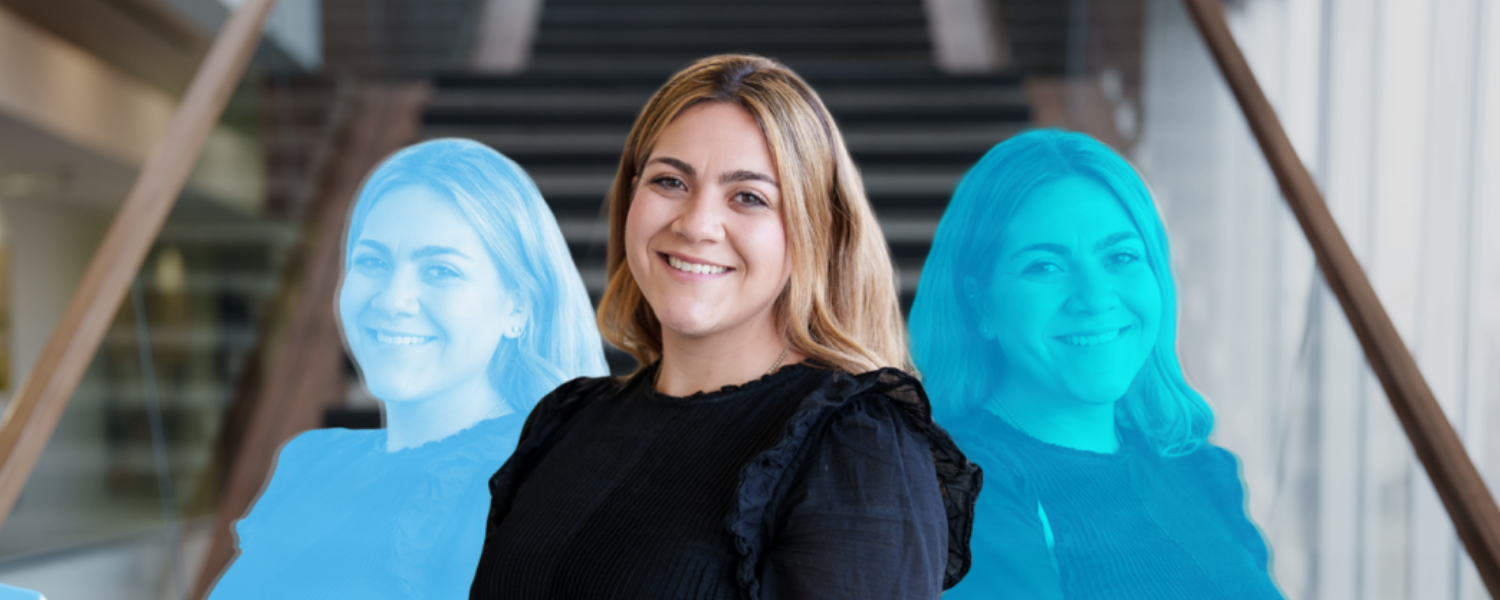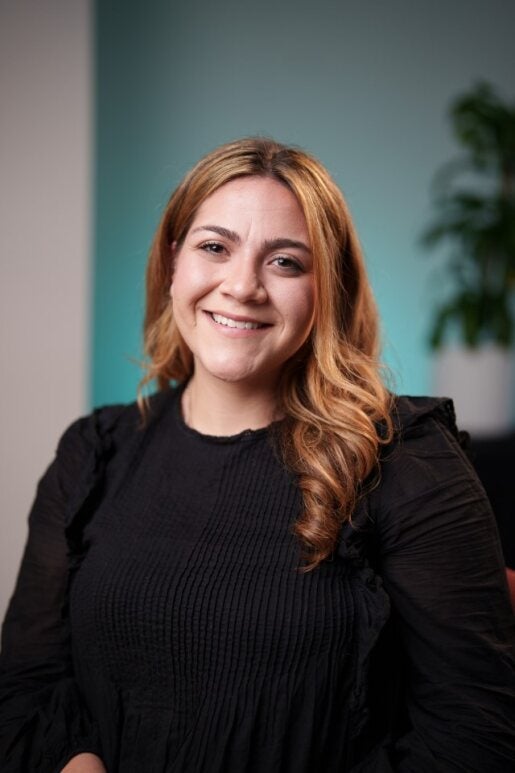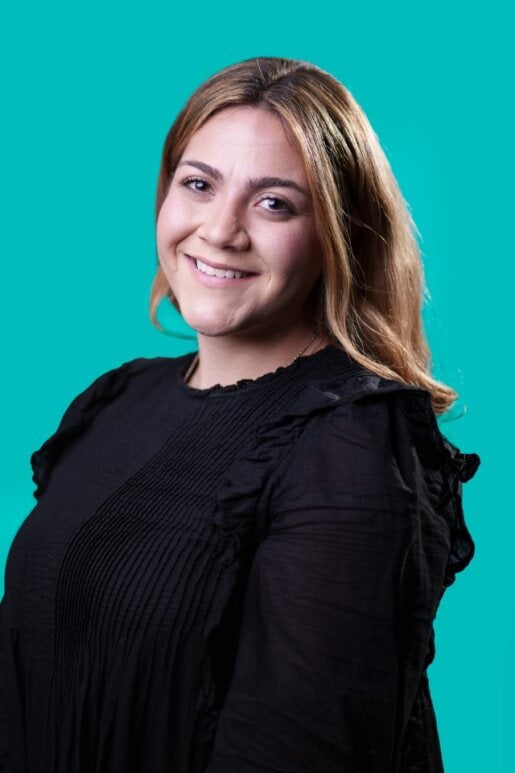 This year’s Co-op Student of the Year for the Faculty of Health is fourth-year Health Studies student Danielle Lebowitz (she/her). Danielle’s incredible work with patient genetic testing at Sunnybrook Hospital coupled with her consistency and dedication has earned her this prestigious award.
This year’s Co-op Student of the Year for the Faculty of Health is fourth-year Health Studies student Danielle Lebowitz (she/her). Danielle’s incredible work with patient genetic testing at Sunnybrook Hospital coupled with her consistency and dedication has earned her this prestigious award.

At Sunnybrook Odette Cancer Centre, Danielle’s main responsibility was to aid in the genetic counselling process, primarily related to patients’ family histories. By mapping out family histories and creating pedigrees, she would help genetic counsellors determine whether the patient should be offered testing for a certain type of cancer that they might be susceptible to.
“I was really involved in patient-centered care and it was amazing to interact with them. The gratitude that I heard from [patients] every day made me feel incredible.”
Danielle went above and beyond her role presenting new ideas to colleagues. Through this process, she found interesting research on molecular tumor boards. This research was presented to help physicians who do genetic sequencing determine targeted treatment options. After positive feedback, she was asked to present the research to physicians across different disciplines within the hospital. Danielle’s work has grown into a project that lives on past the conclusion of her work term.
Where did your passion for genetic counselling stem from?
“I've always been really interested in science. At the same time, I also really love the therapy aspect of listening to people and understanding social relationships. However, I always knew that I did not want to be a therapist because that isn’t my strong suit.”
“When I came to Waterloo for a tour, I looked at one of the pamphlets for the Faculty of Health explaining what the different jobs could be for health students. One of them was genetic counselling. My mother and I looked into it further and thought that this might be a perfect fit for me. It's the combination of science and therapy in the sense that it's patient care, but it's also super scientific. So, that intense emotional aspect is very much present.”
“I read more about the co-op program and saw that Sunnybrook was mentioned as an employer. Being from Toronto, Sunnybrook is an amazing institution that I’ve always associated with quality care. In grade 12 I decided I'm going to this school, I'm getting this co-op position and I'm going to become a genetic counsellor. I aligned all my co-op opportunities to gain the skills I thought they would want. It’s been a long road here and I’m very appreciative of everything that’s happened along the way.”
How did your co-workers support you during your time at the hospital?
“It’s very important to the team at Sunnybrook that their co-op students understand what the profession is, because it is niche and it is becoming popular now. More importantly, though, the team wants to make sure that you're interested in it and that you want to pursue it. They understand the doors that this co-op position opens for you, especially in terms of pursuing a master's of genetic counselling later.”
“I think an important part of co-op is being able to solidify what you want to do. I thought this profession aligned with my passion, but I had never worked in it before. This was the time to determine if it is the right path for me. The team at Sunnybrook were truly amazing and they gave me tons of opportunities that extended outside of my job responsibilities.”
“I really felt in my co-op positions as though I wasn’t just a cog in the wheel or a student off to the side; I never felt unimportant. I really was important and without me, things couldn’t move forward. Once I was able to fulfil their expectations of me and the roles that I had to complete, they started giving me other opportunities, which was really exciting.”
“Towards the end of the co-op, they all wanted to talk to me about my future. They wanted to tell me about the schools they went to for different programs and offered me advice about the programs they thought might work best for me, both as a professional and as a person. I really bonded with them beyond the professional space. I got to work with eight incredible genetic counsellors who are mentors to me. Now I have this amazing home base at Sunnybrook in Toronto. No matter where I end up for grad school, I have people who believe in me and think I can do this.”
What’s one accomplishment from your co-op term that you’re proud of?
“Definitely this nomination! The genetic counsellors called me to tell me that they want to nominate me for the award and that they’ve only done this once before. The person who they had previously nominated was a Waterloo student too and is now a genetic counsellor at Sunnybrook. I was shocked, in awe and humbled.”
“I think a lot of co-op students don't realize the impact they make and how much they do for their co-op employers because of imposter syndrome and because you're not really qualified in the field yet. At the end of the day, you are a part of the team and your work matters so much. I know I did a lot of things and to see my colleagues appreciate the effort that I put in is a great feeling. They understood how much I want this and how much I put into the co-op term. It wasn't easy at times and eight months is a long time, but it was very worth it when I got this because I have their respect and their admiration. That's really the best thing that could have come out of it.”
How would you describe to an employer what you bring to their organization?
“Going into the healthcare field, it’s important to believe in prevention first. Public health is becoming a big concern, especially since COVID. Everyone is starting to believe in upstream thinking and preventative medicine. I believe in looking at someone as a holistic being, their environment, their culture, their circumstances instead of just their family history.”
“It’s not just about who they are right now, at this very moment and how their body reacts to whatever is going on, but also who they’re going to be in the future. I believe that mindset is important to employers also, because you're seeing this human not as only a body, but you're seeing them as an actual human being.”
“That's the foundation of giving quality care. I also believe being personable, being able to talk to people and being able to understand is important. Having the emotional capacity to listen to someone's hardships and separate yourself from them, to just be an active listener in their story and really support them is imperative in this profession. It's not about giving advice, but instead just listening, and supporting and being there for them. These are foundational to patient care and extremely valuable to an employer.”

What’s next for you?
“I have applied for a Master of Science in Genetic Counselling at universities in the U.S. and Canada and am currently interviewing for a spot in the programs. I hope to match with a program this coming April and begin my journey towards becoming a genetic counsellor.”





